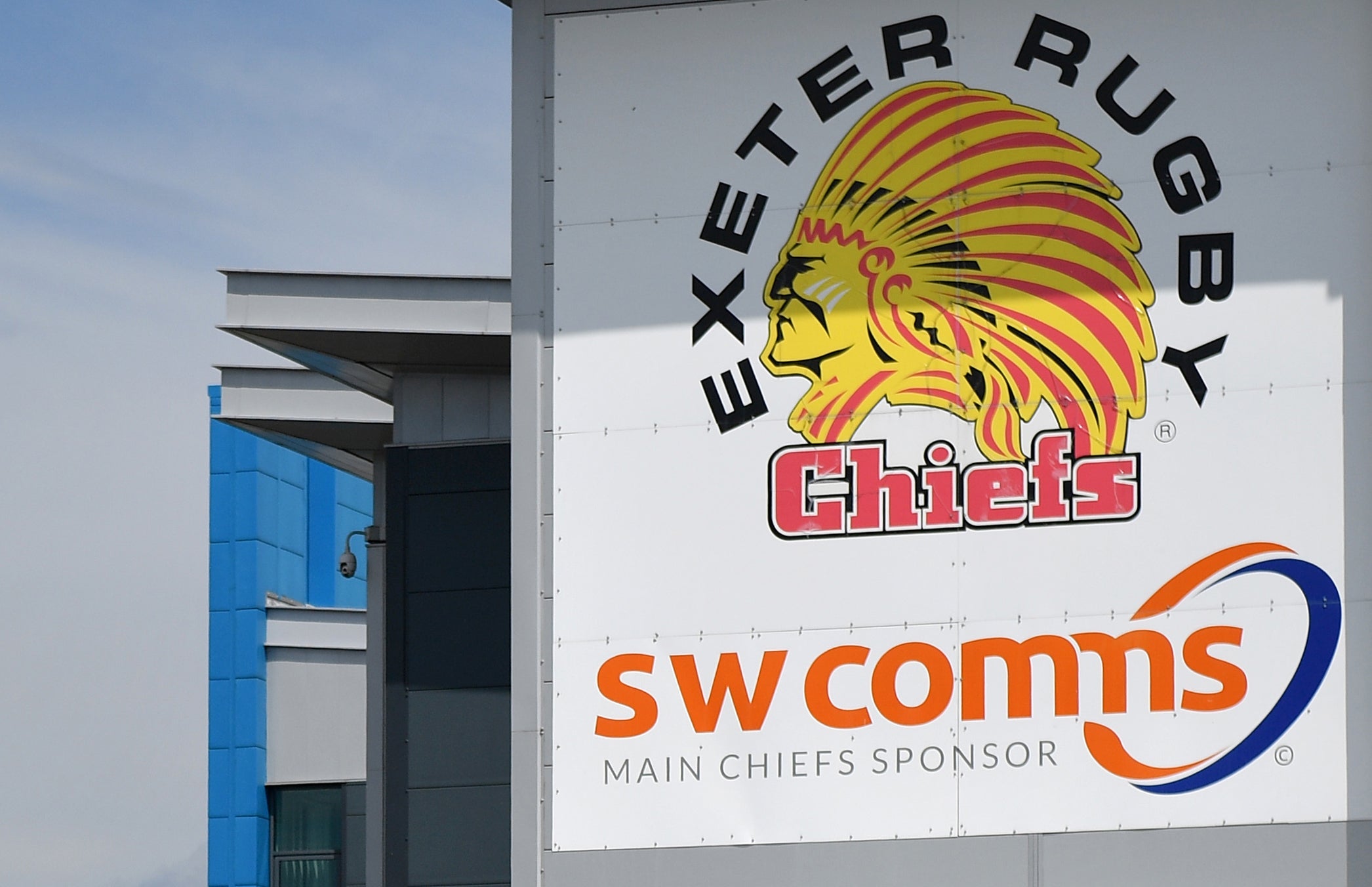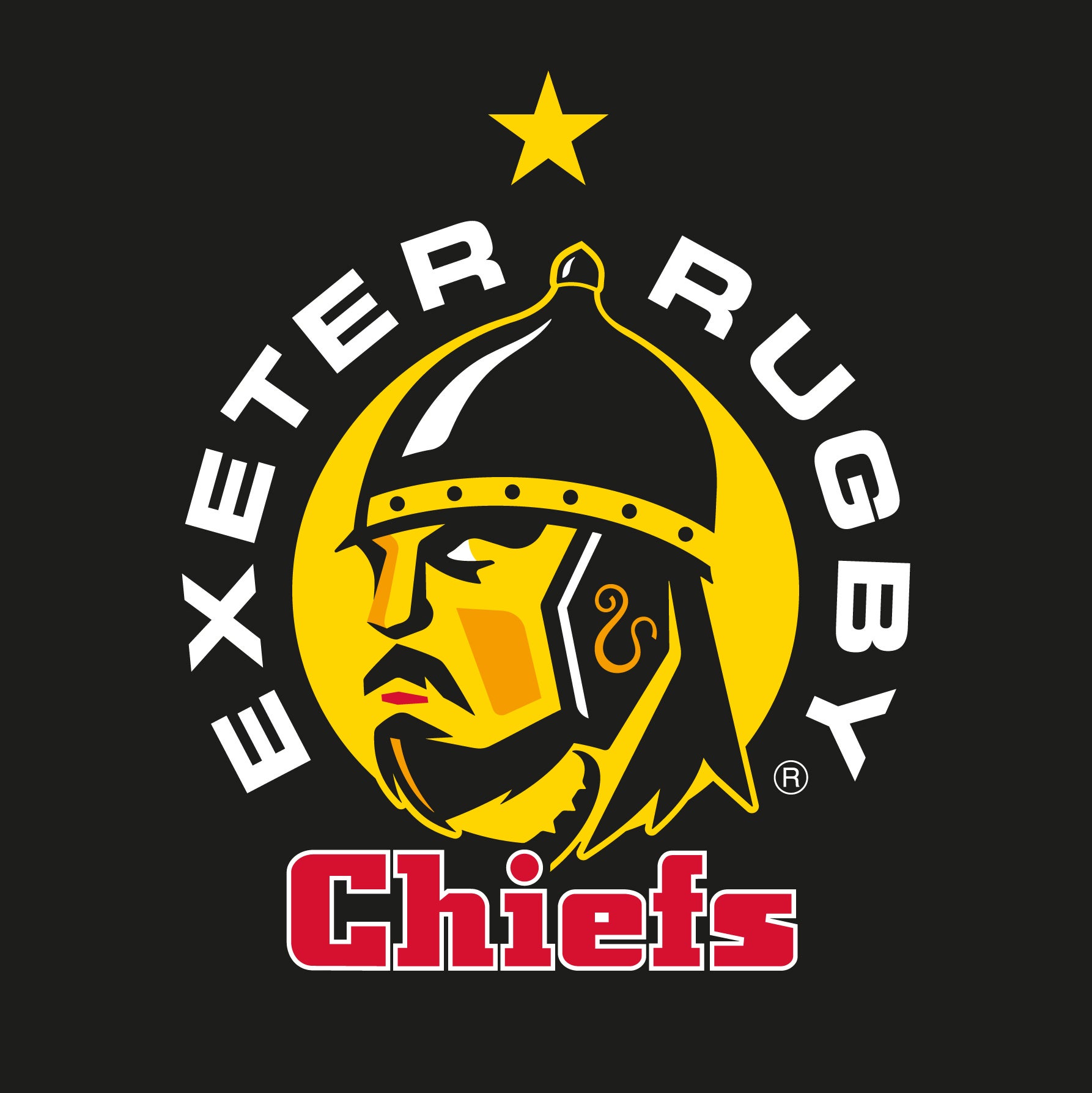Exeter Chiefs to abandon Native American branding after criticism
The new identity, including a change to their logo, will take effect from July

Your support helps us to tell the story
From reproductive rights to climate change to Big Tech, The Independent is on the ground when the story is developing. Whether it's investigating the financials of Elon Musk's pro-Trump PAC or producing our latest documentary, 'The A Word', which shines a light on the American women fighting for reproductive rights, we know how important it is to parse out the facts from the messaging.
At such a critical moment in US history, we need reporters on the ground. Your donation allows us to keep sending journalists to speak to both sides of the story.
The Independent is trusted by Americans across the entire political spectrum. And unlike many other quality news outlets, we choose not to lock Americans out of our reporting and analysis with paywalls. We believe quality journalism should be available to everyone, paid for by those who can afford it.
Your support makes all the difference.Exeter are to rebrand themselves in line with the Celtic Dumnonii tribe after deciding to abandon the controversial Native American theme that has provoked fierce criticism.
The new identity, including a change to their logo, will take effect from July and while the “Chiefs” nickname is being retained, the club said it will be now be aligned with a “poignant and significant nod to the past”.
The Celtic Iron Age Dumnonii tribe encompassed an area covering Devon, Cornwall and parts of Somerset for centuries before the Roman occupation from 43AD.
A large section of supporters campaigned for change in the belief that the current imagery disrespects indigenous people in North America, prompting a review process that has now been concluded.
Chiefs fans have repeatedly been asked by opposition clubs not to wear the symbolic headdress to their grounds, while the National Congress of American Indians wrote to chairman Tony Rowe last year to say that the current branding “harms native people through the offensive stereotypes it promotes”.
“We are excited to welcome in the next era of rugby within Exeter. Exeter has and always will be the most important term in our overall identity,” Rowe said.
“The term Chiefs, however, is equally entrenched in our make-up, going back to over a century ago when teams in this region would regularly call their first teams that of the Chiefs. We are Exeter, we are the Chiefs!
“As a rugby club we have been willing to listen, we have consulted far and wide, and now we are ready to invoke change.
“This is a new direction for our great club, but equally it’s an exciting vision that I’ve no doubt will propel us onwards and upwards over time.
“Our new imagery will bring to life the pride our supporters have to support their club, unifying us all under one brand that underlines all of our core traditions.”

Exeter, the 2020 Gallagher Premiership and Heineken Champions Cup double winners, first officially became known as the Chiefs in 1999 but have had links with the nickname for decades.
Their mascot “Big Chief” was retired last year as opposition to the branding intensified.
In addition to their new association with the Celtic Iron Age Dumnonii tribe, Exeter are also drawing from the history of the Celtic Kingdom of Dumnonia, which was established around AD410 and lasted almost five centuries.
“The change in identity comes in the wake of the Exeter board undertaking a full and informative review process over the past two years,” a club statement read.
“In launching the new imagery, detailed submissions, together with extensive historical research from leading professionals, have been undertaken to ensure the club have a brand that not only recognises our traditions but, more importantly, identifies with our supporters and the region itself.”
Join our commenting forum
Join thought-provoking conversations, follow other Independent readers and see their replies
Comments